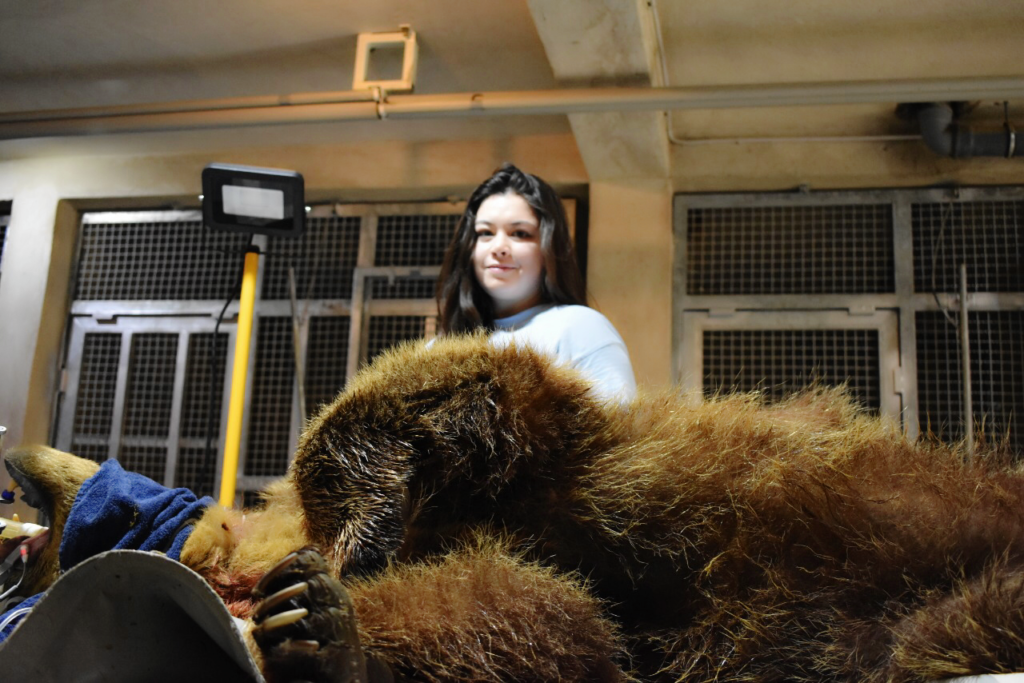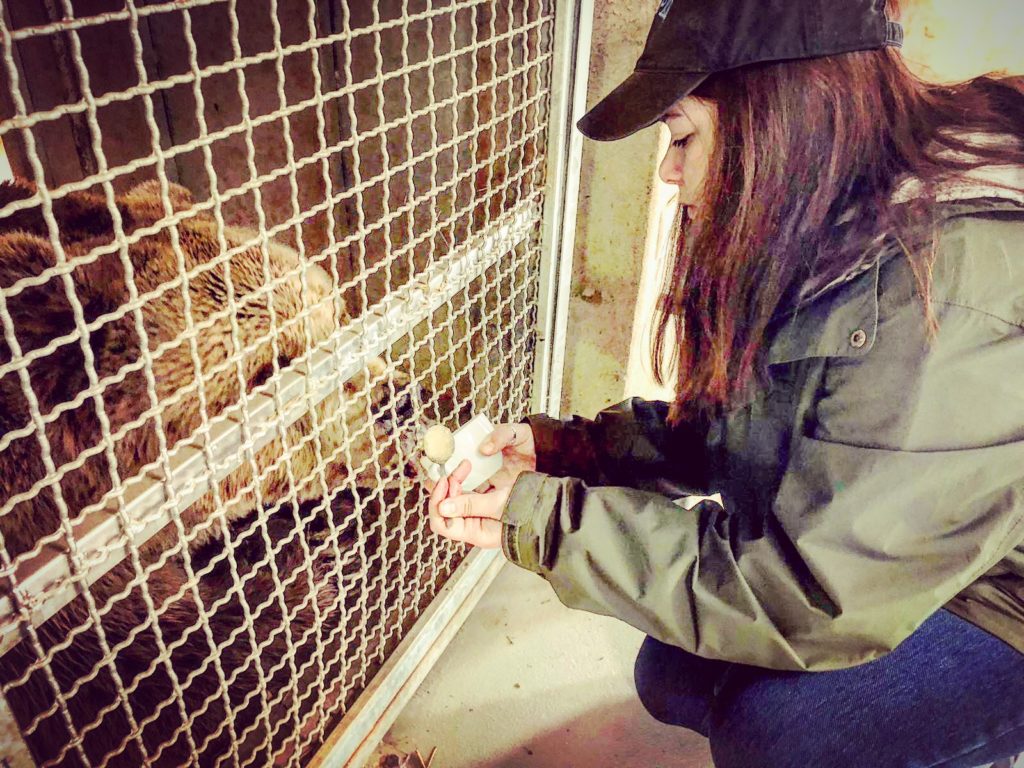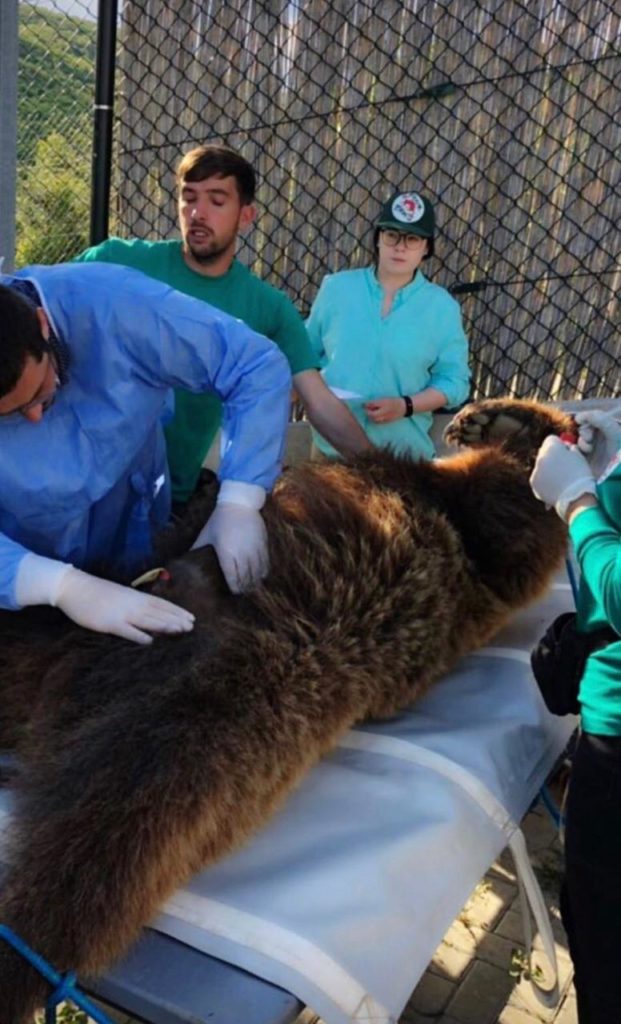Our Member Spotlights feature our incredible members across the world, rehabilitating baby penguins in South Africa, sea turtles in Cyprus, bats in the United States, brown bears in Kosovo, and beyond. We invite you to visit our map to meet more members and click here if you are an IWRC member who would like to be featured.
Name: Kristina Madarang Stahl
Organization: Bear Sanctuary Prishtina and the Bear Care Group
Location: Prishtina, Kosovo

IWRC: Hi Kristina! So, tell us a little bit about yourself…
Kristina: I’m a bear biologist, philanthropy and communications officer, editor, and board member of the Bear Care Group. I received my MS in environmental science and policy from Johns Hopkins University and have professional certificates in environmental communications, project planning and management, animal behaviour and welfare, animals in disasters (preparedness/planning), livestock in disasters, and fundraising & development from UC Davis, UVA Darden School of Business, Duke University Nicholas School of the Environment, and the UEdinburgh Royal (Dick) School of Veterinary Studies. I am an avid student of the IWRC curriculum and have completed the zoonoses, pain management, and oil spill volunteering courses. I produce a podcast centered on bear behavior, management, and conservation called “Bear with Me: Let’s Talk Bears”. When I’m not working, I sing, play piano, box, play tennis, and train my standard poodle, Jackie, using operant conditioning.
IWRC: What brought you into wildlife rehabilitation work?
Kristina: My move to Prishtina, Kosovo for a diplomatic tour brought me into wildlife rehabilitation work with Bear Sanctuary Prishtina and a local veterinary clinic, though my academic background in conservation biology and wildlife management serve as the foundation for this experience.
IWRC: What wildlife species do you rehabilitate?
Kristina: We have rescued and actively rehabilitated twenty Eurasian brown bears, abandoned and stray dogs, cats, and a Eurasian buzzard.
IWRC: What is your fondest wildlife rehabilitation memory?
Kristina: My fondest wildlife rehab memory was releasing a Eurasian buzzard who had presented several months earlier with extensive damage to its wing. It took almost an hour to convince it to fly, the moment that it pitter-pattered, flapped its wings, and disappeared into the woods was extremely satisfying – a long-awaited display of the dignity of this creature.

IWRC: What challenges have you faced in your wildlife rehabilitation work?
Kristina: Acquiring enough funding to allocate to the psychological aspects of the animals’ rehabilitation – finding cost-effective ways to enrich the animals and keep their natural behaviors sharp is extremely challenging.
IWRC: Has the IWRC aided you in your journey as a wildlife rehabilitator? If so, can you explain how or give an example?
Kristina: The IWRC is a wealth of resources and the courses are crucial to staying up with best practices and globally-recognized standards for rehabilitation.
IWRC: What common misconception about wildlife rehabilitation would you like to dispel?
Kristina: Misconception: all members of a species will act predictably the same. In my work with bears, it is apparent daily that each has his or her own personality and behavior traits. Many people with whom I have spoken try to generalize bear behavior, especially related to the topics of bear attacks, livestock predation, and habituation/development of nuisance bear behavior. While there are absolute truths about the preventative measures people can take to avoid both of these things, I try to drive home the point that each interaction can and will be different, so people should learn as much as they can from reputable sources, prepare for everything, and be adaptable.

IWRC: How has your wildlife rehabilitation work been impacted by COVID-19?
Kristina: Limited access to the bears has limited enrichment opportunities.
IWRC: What local, national, or international policy would you like to see that would support wildlife rehabilitation?
Kristina: Passing the Big Cat Welfare Act and an addendum regarding other large charismatic megafauna like bears would help wildlife rehabilitation by making breeding for non-reintroduction/extinction prevention purposes illegal. This would decrease the number of poached cubs and mistreated restaurant, circus, and bear bile bears from around the world from ending up in sanctuaries and rehab facilities.
IWRC: What do you hope for the future of wildlife rehabilitation?
Kristina: I hope that wildlife rehabilitation can garner more public support and consistent government and private funding.
IWRC: What message would you like to share with other IWRC members and wildlife rehabilitators across the world?
Kristina: Great job! Keep up the good work. You are heroes in a well-respected trade with a great reputation.
IWRC: Where can people learn more and follow your work?
Website: https://www.four-paws.org/campaigns-topics/sanctuaries/bear-sanctuary-prishtina
Facebook: https://www.facebook.com/PylliiArinjvePrishtina/
SoundCloud: https://soundcloud.com/kristina-madarang-stahl
IWRC: Thank you so much for everything you do and sharing your story with us, Kristina!
We want to hear from you! If you an IWRC member and would like to share your wildlife rehabilitator story with us, please click here.

Leave a Reply
You must be logged in to post a comment.